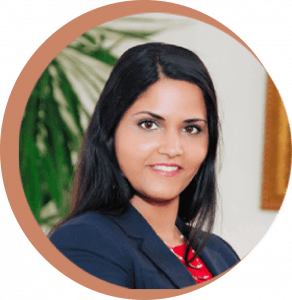Imagine you are sitting next to your friend or a beloved family member and sharing the news of your miscarriage. Well, if you are here, chances are, you don’t have to imagine. You practice the conversation in your head several times over in hopes that you will know what to say and how to say it, and maybe even manage to fight your tears back. And yet, no amount of practice prepares you enough for such a conversation. How can it? It’s so darn hard!
I can also tell you that having that talk with a child who just lost her unborn sibling is much, much harder!
Recalling it isn’t easy either. But my hope is that my story will yield the strength and courage you may be seeking if you need to talk to your child but haven’t.
You may be wondering if you even need to talk to your kids. To that I would say it depends. It depends on how old your kids are, if they knew about the pregnancy, how aware they are of their surroundings, and if they may have picked up on your pregnancy even if you didn’t explicitly tell them. Because let me tell you, kids are smart, sensitive, and intuitive beings.
If on any level you sense that your child(ren) knew about the pregnancy or that they are picking up on something being wrong now, you need to have an open conversation with them. Regardless of their age.
You do not want your child assuming that your sadness, anger, or lack of patience these days has anything to do with them. Kids are smart, but they’re also very self-centered. In the most adorable way, of course. They’re quick to assume that Mommy is sad because they were bad.
I know you are going through a lot and have your own grief to process. But this must be addressed, as well. If you think it’s too much for you to handle, have your spouse or partner do it. Or perhaps a grandparent or an adult that your child feels safe with and can ask questions.
In my case, it wasn’t a question of whether or not to have the conversation with our three year old daughter. She had lost her grandfather when she was two and we had explained things to her in as age-appropriate a way as possible. We don’t lie about death in our family. How can anyone anyway, with every Disney movie depicting death in one way or another?
Besides, our daughter is very attentive. So, even if she hadn’t known about the pregnancy, she would have figured out that something was wrong.
But since she did know about the pregnancy, she also knew that I had a doctor’s appointment that morning. She noticed my outfit was too casual for a weekday and asked why I wasn’t dressed for work (told you, attentive!). I said I had to see the doctor later that morning. She asked why again, like a classic 3 year old, and I said “just to make sure the baby is growing okay.”
That conversation ended there. In the hours that she spent at preschool that day, I went through an emotional rollercoaster so many times that I forgot all about our conversation. But she didn’t. The first thing she asked when she saw me was “Mommy, what did the doctor say?”
She caught me off guard. I didn’t think she would remember and certainly didn’t think that would be the first thing she would ask. She was so excited. I wasn’t prepared to break the news to her yet. Heck, I hadn’t come to terms with it myself!
I held her close to my heart, tried to keep my voice as steady as possible, and said “The doctor said you get to be our only princess and keep Mommy and Daddy all to yourself for a little while longer.”
She didn’t respond, and I welcomed that, because I didn’t know how many more great responses I would be able to come up with. I was proud of this one and I preferred to leave it at that.
An hour later, while molding and shaping her playdough, she asked “Is the baby sick?” My husband and I looked at each other and before any of us could respond, she said “The baby is sick.” She said it with zero emotions and resumed her play.
Over the next few days, her questions came at random moments, and we did our best to address them, to help her cope and process at her own pace. She was saddened by the loss but found her happy groove rather quickly each time, until eventually she was able to get back to her usual question of “When will we have a baby?” with no grief attached to it. She had been asking this question since she was two.
Coping with the same loss a second time was much harder for her. Maybe because she was four now and more capable of understanding. Or perhaps because I’d been pregnant longer this time, allowing that excitement to build up in her even more. Or maybe she accepted once that random things happen but for them to happen twice?
The night she discovered she had lost her sibling again, her sobs were deeply heartbroken and heartbreaking! I’d never seen her cry like that…ever. It was devastating! We felt helpless. Here was our precious daughter, her hopes and dreams shattered, as she screamed “the baby can’t die!” over and over again.
We couldn’t do anything to make her pain go away. The desire to help your child but not having any means of doing so is such a challenge for parents! But it’s also an important lesson, for both parties involved. Because we won’t always be able to kiss their troubles away. We shouldn’t, either.
As parents, our role is to equip them with tools so they may cope with pain on their own, at their own pace, in a way that’s right for them, with us supporting them along the way.
As I held my trembling daughter in my arms, feeling her pain that made mine grow ten fold, I was tempted to distract her. Tempted to talk about happier things to help her feel better. But that would’ve been wrong. I’d be doing her a disservice.
Over the next few weeks, we had to be conscious and deliberate in allowing her to feel, cry, ask, or however coping came to her naturally.
That night, we just sat there, in a family cuddle – our daughter crying loudly as my husband and I let our tears roll down our cheeks silently, giving her as much time as she needed to settle into the new reality, whispering “We’ll figure this out, honey. Together. As a family. We always do.”


